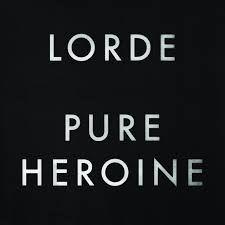 “Don’t you think that it’s boring how people talk?” asks sixteen year old, New Zealander Lorde in the opening line of her début album ‘Pure Heroine’. It might be gossip that she finds dull, but talk is actually what has catapulted the artist’s first major release on to the global stage and placed her in the midst of a media frenzy.
“Don’t you think that it’s boring how people talk?” asks sixteen year old, New Zealander Lorde in the opening line of her début album ‘Pure Heroine’. It might be gossip that she finds dull, but talk is actually what has catapulted the artist’s first major release on to the global stage and placed her in the midst of a media frenzy.
Kickstarting the album is Tennis Court, a track that was released earlier this year on an EP of the same name. What is most striking about Lorde, is her voice and how she chooses to manipulate it. 400 Lux showcases a gravelly, lower range. “We might be hollow, but we’re brave” she sings over a drone. The popular Royals is a prime example of the haunting phrasing Lorde is capable of; “I’m not proud of my address” precedes a contrasting, lighter, pop chorus. The arrangement of the layered vocals and harmonies as heard on the standout, trance-like Ribs is another appealing element on the record, however as the Jools Holland performance illustrated, this may not translate well to a live setting.
It is obvious that the lyrics are penned by a sixteen year old but that is not neccesarily meant as a criticism. Lorde’s muse is the world she inhabits and making her writing refreshingly honest. “We live in cities you’ll never see on-screen. Not very pretty, but we sure know how to run free” she repeats in Team. Lorde has created stories around simple anecdotes from personal experiences; spilled drinks, birthdays, laughing until ribs tire and riding on buses and bikes. Listeners are invited to relive these tales with her.
Throughout the album, Lorde’s vocals and lyrics are paired with synths and drum beats. The result is an intriguing illustration of the universal themes of teenage angst and joy. Lorde’s blend of bittersweet, dark pop with an attitude to boot, is mixed with up-to-date references and occasional monarchical imagery. At times the sound seems a little repetitive, Glory and Gore is like something you’ve heard before, yet the album is fresh, particularly after recent hysteria surrounding former Disney princesses. “I’m little but I’m coming for the crown” she chants in Still Sane.
Lorde has been compared to Lana del Ray; both artists share a similar overnight rise to fame and a penchant for storytelling lyrics, yet this is a surface level comparison. Lorde’s rapping for example, is more reminiscent of Uffie than Lana. There’s something very irksome about the album, in that it’s an electro-pop guilty pleasure, that refuses to be dismissed and compared to other teen starlets output. This is a noteworthy début release from Lorde, with a solid theme, distinctive sound and promise of more to come.

